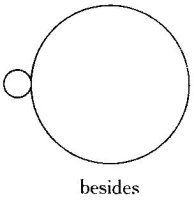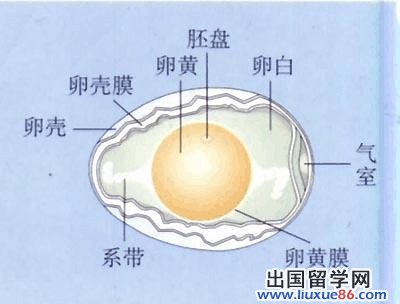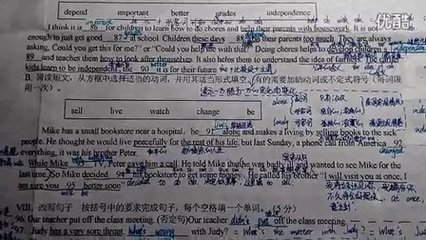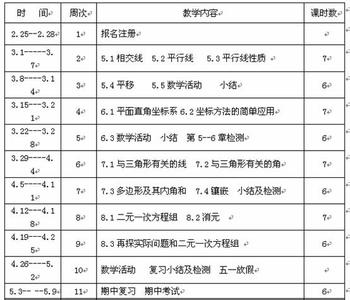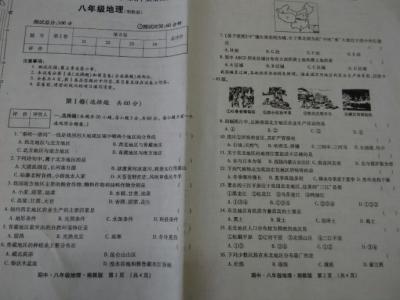新目标英语八年级下学期重点短语与句型9
一、短语与句子
Unit 9 Have you ever been to an amusement park?
1.have/has_______去过… 2.have/has_________________从未去过… 3.have/has___________去了… 4._____________我也如此. 5._____________.我也不是这样. 6.space museum航空博物馆
7.____________结束 8.on board/ on the boat在船上 9. take a ride 兜风
10.take different routes沿不同线路 11.such as/ for exmaple例如 12.have classes/ take lessons上课
13.think about考虑 think of 想出;认为 14.take a holiday /be on vacation 度假
15.in Southeast Asia在东南亚 16._____________四分之三
17.have some problems with sth. / (in)doing sth. 做某事有困难
18._____________ 一年到头 19.at night 在晚上 / during the daytime 在白天
20._____________ 在白天 21.something ________________一些吃/喝的东西
22 ._________________. 选择做某事 23.any other+单数可数名词 任何一个其它的….
24.an ________________country .一个说英语的国家
25.The best way to do this was _____ __________ a flight attendant.
做这件事最好的方法是成为一名机组乘务员。 (be to do 动词不定式做表语)
26.I’ll think about __________an English teacher ________ _______ a tour guide.
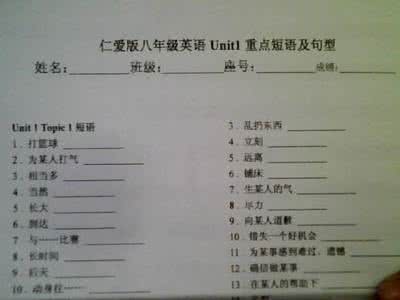
我将考虑成为一名英语教师而不是一个导游。
27.More than _______ _________of the population ______Chinese .
超过四分之三的人口是中国人(的后裔)。
(表分数:分子用基数词,分母用序数词。当分子大于1时,分母用复数形式;)
(population:不可数名词。做主语时,谓语用单数。问人口的多少用what 或how large 提问。“多”用large , “少”用small。 当population 前有分数、百分数等修饰时,表复数概念)
28. It’s a good place _____ _________ your English . 它是一个练习你英语的好地方。
29. __________醒来,唤醒 be awake 醒着的 (wake,动词;awake,形容词,常做表语)
30. _____ spring/ summer/autumn/winter 在春季
31.It was because I could speak English that I got the job. 只是因为我能说英语,我得到了这份工作。
(强调句型,结构:It +is / was +that(若强调的是人,还可用 who) +其他…..。
二、重要单词
1、see---saw---seen 2. especially(副词)----especial(形容词) 3. exchage(交换)---change (改变)
4.requirement(名词)----require(动词,相当于ask) 5. film (=movie) 6. holiday(=vacation)
7. wonderful---more ~ ---most ~ 8. excellent---more ~ ---most ~ 9 Indian ----India (印度)
10. natural ---more ~ ----most ~ 11. whenever (无论何时,whoever,无论谁,whatever,无论什么,wherever,无论哪儿) 12. wake (动词:醒来,唤醒,常与up连用) awake (形容词,醒着的,常做表语)
13.temperature (描述温度的高低用:high, low)
其他重要单词:amusement , neither , character, theme, attraction, board , route , island , discover, guide , southeast , quarter, population, simply, fear, brave, dark, daytime, environment , spring, autumn, season。
三、语法
(一)、现在完成时: have / has +动词的过去分词 , 否定式:haven’t / hasn’t +动词的过去分词
1.现在完成时态表示过去发生的动作对现在造成的影响或结果。本时态标志词:already (“已经”,用于肯定句中,放在have /has之后或句尾); yet (“仍然”“还”,用于疑问句或否定句的句尾) just(“刚刚”,放在have /has之后); before(“以前”,放在句尾);ever(“曾经”,放在have /has之后) never (“从没有”,在have /has之后)
例句:Our teacher has just left. I have not finished the homework yet.
2.某个动作从过去已经开始,一直持续到现在,还有可能持续到将来.动作的持续性要通过一段时间来表示一段时间的表达方法有两种: for: +一段时间 Since +过去的某一时刻 Since +句子(一般过去时态)
3、 注意事项: A. 现在完成时是现在的时态,重点表达目前的结果和状态; B. 表示动作从过去开始持续到现在用for + 时间段, since +点时间连用。对for与since短语提问用how long; C. 现在完成时从不与when引起的疑问句联用。
D. have/has been to:去过…(现在不在所指地点,常与ever, never, before, already, yet, 次数连用)
have /has gone to:去了… (现在不在说话现场,常与just连用)
have/has been in:呆在… (常与ever, never, already, yet, before, for+时间段,since+时间点连用)
have/ has been / gone +表地点的副词(here, there, home)
E. 短暂性动词变为延续性动词:
注意:结束性动词不能和表示一段时间的状语连用,但是它们可以转换成相应的延续性动词.
1.直接用延续性动词
buy– have;catch(get) a cold –have a cold;borrow—keep;become—be;put on-- wear
2.转换成be+名词
join the army – be a soldier;join the Party –be a Party member;go to school– be a student
3转换成be+形容词或副词
die—be dead;finish – be over;begin—be on;leave—be away ; fall sleep – be asleep close – be closed come to/ go to/arrive at(in)+某地—be in(at) +某地
4.转换成 be+介词短语go to school– be in school ; get up_ be up;
四、辨析
1.neither, either, none, both, all, each, every , any
neither , “二者中任一不”(neither/ neither +单数可数名词/ neither of +复数名词、代词。 表单数概念)
either, “二者中任一都” (either / either +单数可数名词 / either of +复数名词、代词。 表单数概念)
none ,“三者及以上都不”(none / none of+复数名词、代词,表单数或复数概念)
both ,“二者都”(both / both +复数名词, both of+复数名词、代词,表复数概念)
all, “三者都”, (all / all +复数名词, all of+复数名词、代词,表复数概念)
each,“二及以上中的每一”(each / each +单数可数名词 / each of +复数名词、代词。 表单数概念)
every, “三及以上中的每一”(every+单数可数名词/ every one of +复数名词、代词。 表单数概念)
any , “一些(与some相同)”; “三者及以上任一” (any / any +单数可数名词 / any of +复数名词、代词。 表单数概念)
neither 还可用在倒装句中,表示与上述的否定情况一致。它的结构是“ Neither/Nor + be动词/助动词/情态动词+主语”。而表示与上述的肯定情况一致用so,它的结构是“So+ be动词/助动词/情态动词”。如:
-- I paid 20 yuan for this book. -- So did I. – She isn’t a student . – Neither is he .
2.find , find out, discover
find意为“找到、发现”,指找到或发现自己所需要的东西或丢失的东西,着重指找到的结果。
They finally found a way. 他们终于找到了办法。
discover意为“发现”,表示“偶然”或“经过努力”发现客观存在的事物、真理或错误,即指发现原来客观存在但不为人所知的事物,也可表示发现已为人所知的事物的新的性质或用途。
Columbus discovered America in1492.哥伦布1492年发现了美洲。
We soon discovered the truth. 我们很快就弄清了真相。
find out指经过研究或询问查明某事或真相。
Please find out when the ship sails for New York.请打听一下那艘船什么时候开往纽约。
 爱华网
爱华网